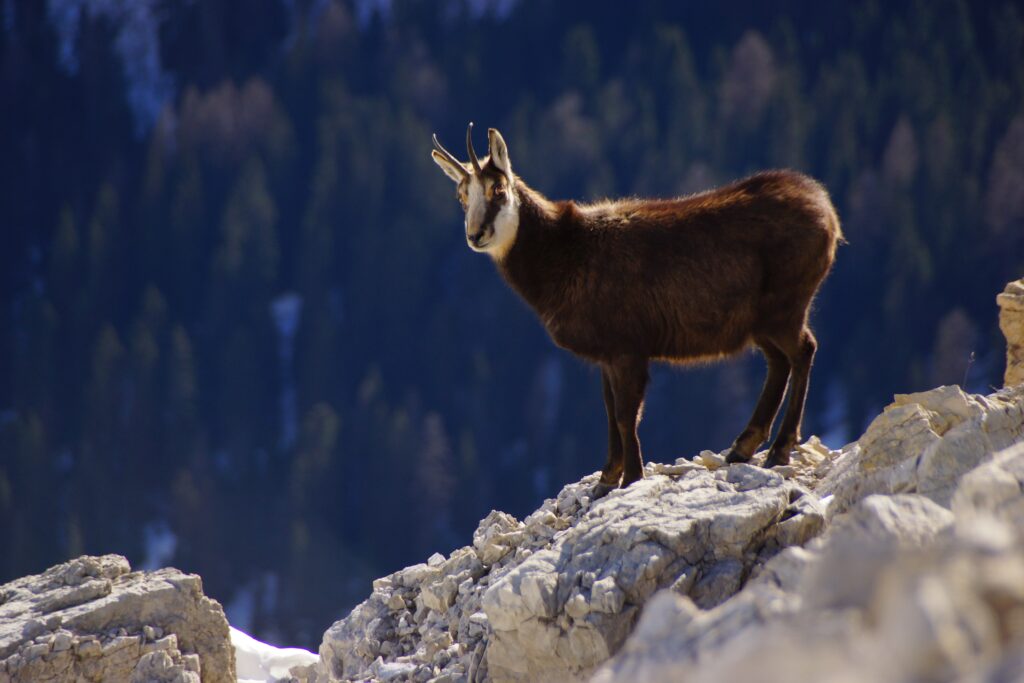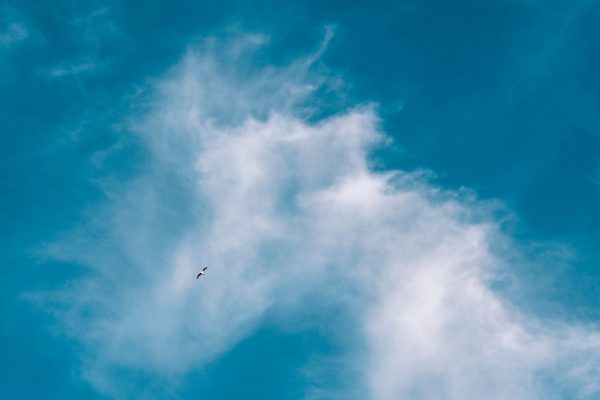A Play In One Act for Yom Kippur
The Actors: One goat, who has all the speaking parts (known sometimes as the Azazel Goat);
The Congregation, who does not yet have a speaking role
The Setting: Here
The Time: Now
Goat: You may be wondering why the cast of characters is so small. I’m sure you’ve noticed that there is no High Priest, no bull, no blood, and maybe, most controversial of all, no God. And you’re probably feeling more than skeptical about listening to an old goat, the likes of me, narrate your Yom Kippur drama. The truth is: I shouldn’t be in this play at all.
But you have insisted on my presence here, chosen me. And none of us can argue with the fact that for thousands of years, you have trusted me with what is most private in your lives, most disturbing to your sense of your own humanity, with things unspoken even to your most intimate of partners. I have borne the weight of your hearts on my horns as I’ve wandered in the wilderness. I know you. I know what you would not wish anyone to know. Who else could possibly narrate this story?
You read this ritual –the one where you slaughter a bull and another goat, where your High Priest splatters the blood in prescribed directions, counting in specified ways, where he wears prescribed clothing, enters the Holy of Holies, and where you send me off into the wilderness with your sins on my head– with some mixture of fascination and abhorrence, honoring it as your history, rejecting it as your destiny. You can’t embrace it and you can’t let it go. I will be respectful of that tension. Perhaps the destruction of the Temple was a catalytic gift, propelling you up a developmental ladder where you moved from killing and blood splattering to reading and telling about these things, from real to imagined.
So, the obvious question is: after nineteen hundred forty one years, is there a next rung on this ladder? And if there is, what is it? And are we ready for it?
Let’s go back to our cast: me and you. A small cast, but still many parts to be played. Because I’m in charge of this play, I can tell you that I will not be playing the usual role assigned me. And you will take on a bit more than what you might have done in previous Yom Kippur dramas.
I’m actually going to assign you all of the roles in this drama, even mine.
First, you will be the High Priest. I know you have showered and chosen special clothes for today. And like the High Priest, you feel both awe and fear on this day when all is sealed, as you have your own encounter with God. I’m guessing that you even have symbolic ropes tied around your core that allow you to pull away when you get too close to important Truths. And along with the rope, I’m also guessing that you know well how to drop incense on a burning coal to create smoke that blinds you from seeing Truth, from seeing the face of God. You are so like the High Priest; you can play this role without rehearsal.
Our play could certainly not proceed without the Holy of Holies. It is where the climax of our drama is enacted, the place where you come closest to God. This Holy of Holies: it is within you. You have called it many things: your heart, your consciousness, your soul. The name you use is not important; the inner knowledge of The Place is supremely so. So, you are the High Priest, and you are the Holy of Holies.
Next, we must figure out how God is to be part of our play today. From several thousand years of Yom Kippur attendance, I know this is less straightforward than your liturgy suggests. But, one way or another, God must be with us today. I imagine you have been spellbound by the abiding Symmetries of the Universe, have seen Beauty that has brought you to your knees, experienced Consciousness too deep for words, known the Unutterable, been born of the Mystery of Becoming, felt Love that took your breath away, stretched forth your most Awakened Selves toward Holiness. This is what we might mean by God, the Idea of a thousand thousand facets, ungraspably complex, eluding language. But because our lives are bound up with all this as much as they are bound up with air, we breathe, like air, one Unified Word, to hold for us all that is beyond holding but must be held, nonetheless. It is in this holding that God might be found. God, therefore, must be played by you if God is to have any real presence in our play.
And me. You know, surely, that even when you transferred those sins to my head and sent me off, I still lived. That midrash that you find both comforting and repellent —the one where I am pushed off a cliff to obliterate me and the all of you that I carry— that never happened. I was always set free; it’s there in Leviticus, the unwritten understanding being that your sins were alive, because I was alive, and because you would never know how near to your camp I might find my way back, you would need to do the continual work of keeping sin away. So, in the end, you are the goat, too, and this play has only one actor: you.
All the roles have been assigned.
Now, what is our drama to be today? Scripture tells us that the High Priest must prepare to enter the Holy of Holies by sacrificing a bull and another of my brethren, and ultimately, banishing me to the wilderness with the weight of your disowned failures on my horns. Midrash describes several ropes —one around the High Priest and one around me— to pull us both away from the Ultimate, the center of life’s pulse. Today’s play must unfold differently. I will help you find the end of the tether that has always bound you, and I will hand that end to you, so that you may lead yourself into all that is Holy. You have never needed a High Priest to go inside the Holy of Holies; in fact, only you, alone, can enter that sacred realm within yourself.
This is where I leave you, poised upon a ladder rung, to answer for yourself: Can you open to the Incomprehensible All in your life? Can you take hold of this tether and lead yourself into your Holy of Holies? There is, after all, only one Yom Kippur sin: to live your life behind that smoky veil, behind the incense-dropped-on-hot-coal-curtain that shields you from all that is bound up in that word God. The only sin: not to live fully in the Presence or Awareness of the sacred, without which, nothing is Illuminated.
I take my exit here.
This is the Holiest Moment; Your Ark, the Holiest Place; Your Encounter, the Holiest Encounter. When you enter your Holy of Holies, what do you find inside? When you emerge, who stands there? Let the play begin…












